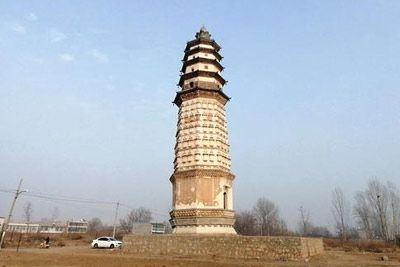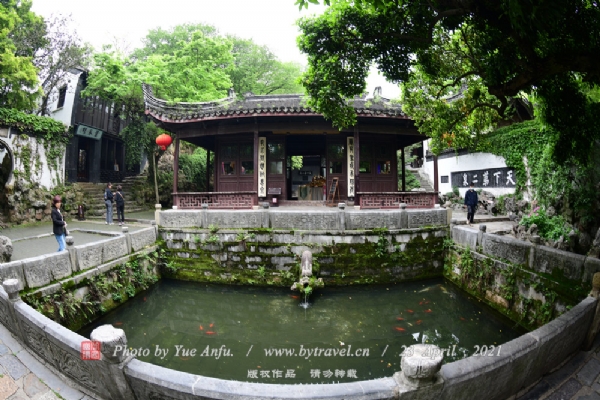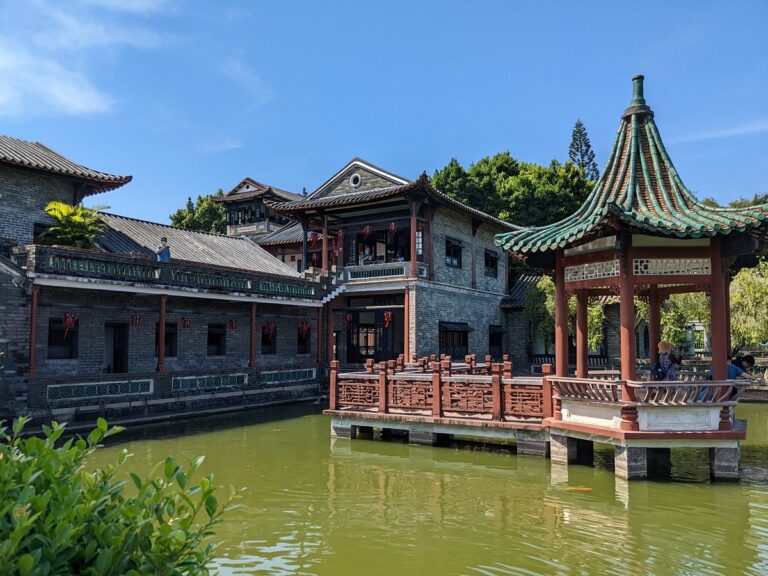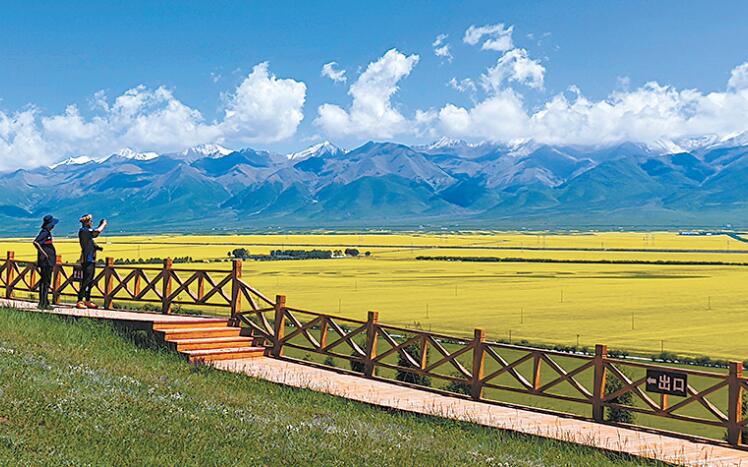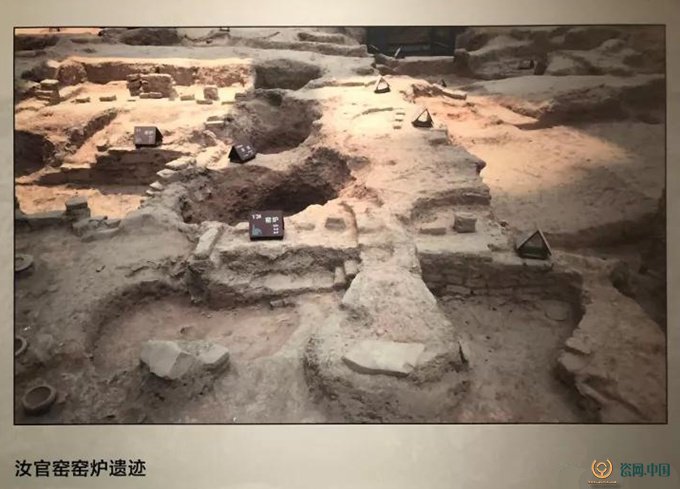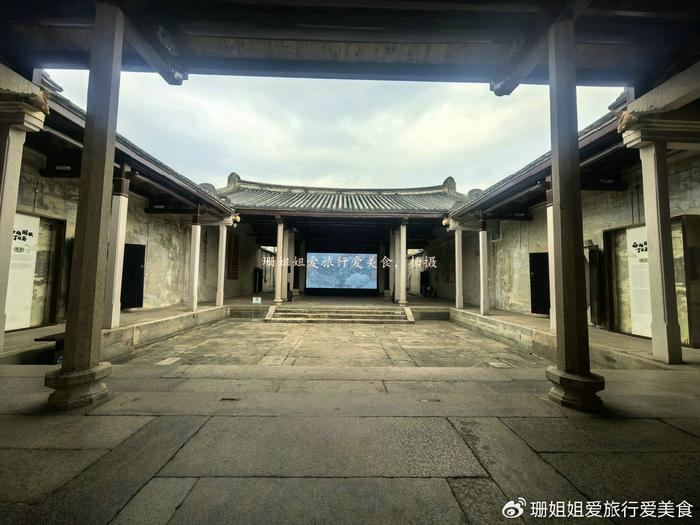Exploring Suzhou Yanyuan: Your Ultimate Travel Guide to Serenity in Jiangsu
An Essential Guide to Visiting Suzhou Yanyuan
In This Guide
Nestled in the heart of Changshu, just a stone’s throw from Suzhou, lies the enchanting Suzhou Yanyuan, a quintessential Jiangnan garden that promises visitors an intimate glimpse into China’s rich cultural heritage. Established in the Qing Dynasty during the reign of Emperor Qianlong, this elegantly designed retreat was originally known as Jiangyuan, named after its founder, Jiang Yuanshu. The garden’s name was later changed to Yanyuan, reflecting the poetic notion of “the swallows returning home,” symbolizing safety and tranquility.
Despite its modest size of merely four acres, Yanyuan is a treasure trove of artistic landscapes and architectural beauty, celebrated for its intricate design that invites exploration at every turn. As you wander through its winding paths, you’ll discover diverse attractions, including the famed “Seventy-Two Stone Monkeys” rock formation and several stunning pavilions like the Shange Pavilion and Wuzhitang, each steeped in history and lore.
Yanyuan is not just a garden; it is a narrative woven through time, where every rock and water feature tells a story of artistry and nature’s harmony. Perfect for leisurely strolls or reflective moments, this hidden gem invites you to escape the hustle and bustle of modern life and immerse yourself in the serene beauty of traditional Jiangnan garden design. Whether you’re a history buff, a nature lover, or simply seeking a peaceful retreat, Suzhou Yanyuan offers an unforgettable experience that encapsulates the essence of China’s garden culture.
The Rich History of Suzhou Yanyuan
The origins of Suzhou Yanyuan (燕园), a classic Jiangnan garden, date back to the Qianlong era of the Qing Dynasty. It was founded by Jiang Yuanshu (蒋元枢), an esteemed scholar and official who, after facing a perilous sea journey while serving as the governor of Taiwan, returned to Changshu and named the garden to reflect the sentiment of a “swallow returning home” (燕归来). Originally known as Jiangyuan (蒋园), the garden underwent a transformation in the Daoguang period when it was acquired by Jiang Yinpei, a local magistrate from Taian, Shandong. He renamed it Yanyuan, further solidifying its poetic significance.
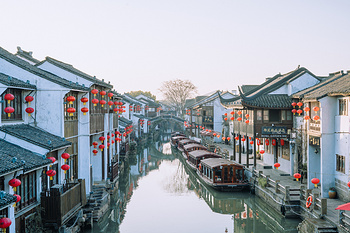
Suzhou Yanyuan.
Covering an area of merely four acres, Yanyuan is renowned for its intricate design and compact layout, providing a rich tapestry of scenic beauty that captivates visitors at every turn. The garden is divided into three distinct zones, with the entrance leading to the first zone characterized by winding paths and cleverly placed rock formations that create an atmosphere of depth and mystery. Notably, the “Seventy-Two Stone Monkeys” rockery, a prominent feature, is sculpted with artistry reminiscent of the renowned gardens of Suzhou.
Throughout its history, Yanyuan has changed hands several times. In the late Qing Dynasty, it was acquired by Zhang Hong, an official who later became known as the “Old Man of Yangu.” He contributed significantly to the garden’s literary heritage by completing his novel “Continuation of the Sea of Flowers” within its confines.
The garden is celebrated for its “Sixteen Scenic Views,” which showcase the unique beauty of Yanyuan. Among these, the Yangu Cave is particularly notable, representing the pinnacle of its scenic offerings. Designed by the famed rockery master Ge Yuliang, it features dramatic formations that echo the natural landscapes of the region.
In addition to its picturesque landscapes, Yanyuan serves as a cultural hub. Historical structures within the garden, such as the Shanshi Pavilion and the Five Herb Hall, reveal the rich academic traditions of the Jiang family, who used these spaces for literary gatherings and scholarly pursuits. The garden also features the Dreaming Lotus Pavilion, a tranquil area steeped in the rituals of honoring the sea goddess Mazu, reflecting the local customs and beliefs.
Today, Yanyuan stands as a testament to the artistry of Jiangnan gardens, inviting visitors to explore its delicate landscapes while immersing themselves in the rich historical narratives that weave through its pathways.
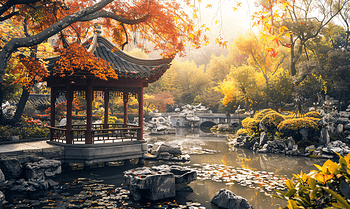
Suzhou Yanyuan.
Main Highlights: What to See at Suzhou Yanyuan
Nestled in Changshu, a city known for its beautiful landscapes and rich cultural history, Suzhou Yanyuan (燕园) is a hidden gem that embodies the intricate artistry of Jiangnan gardens. Established during the Qing Dynasty, this compact garden has earned a reputation for its meticulous design and serene atmosphere, making it a must-visit for any traveler exploring the region.
Architectural Wonders
The garden is divided into three distinct areas, each showcasing unique features and architectural styles. Upon entering, visitors are greeted by the Tongchu Immortal Pavilion, historically a private school for the Jiang family, where you can admire the simplicity of its design, especially during the orchid blooming season.
The 72 Stone Monkey Hill
One of the most iconic features of Yanyuan is the 72 Stone Monkey Hill, a cleverly constructed rock formation that delights visitors with its whimsical shapes resembling monkeys. This playful display not only provides visual intrigue but also serves as a natural playground for children, combining nature with family-friendly fun.
Scenic Pathways
As you wander through the garden, you’ll encounter winding paths that lead to several picturesque spots, including the Poetry Viewing Pavilion. This elevated structure is perfect for contemplation and offers sweeping views of the garden’s tranquil landscapes, enhanced by the surrounding lush greenery.
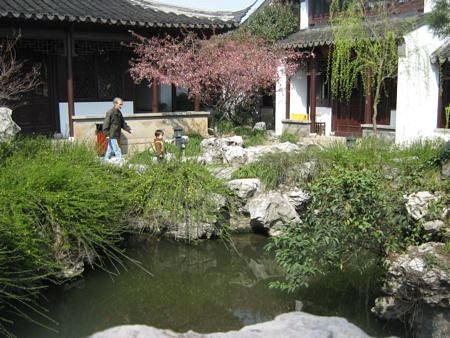
Suzhou Yanyuan.
Cultural Significance
Yanyuan is rich in cultural references, evident in its names and structures. The Five Fungi Hall, a gathering place for friends and family, symbolizes the quest for longevity in Chinese mythology. The elaborate decorations within the hall tell stories of the garden’s storied past, inviting guests to reflect on the heritage of Jiangnan gardens.
Nature and Serenity
Throughout Yanyuan, the delicate balance of water features, lush foliage, and stone landscapes creates a peaceful atmosphere ideal for relaxation. The Lotus Pond and Dreaming Lotus Pavilion are perfect spots to unwind, surrounded by the soothing sound of flowing water and the gentle rustle of leaves.
Seasonal Delights
Visiting Yanyuan during different seasons offers unique experiences. In spring, you’ll be greeted by blooming flowers, while fall brings the enchanting sight of vibrant leaves. Each season transforms the garden, providing a fresh perspective on its beauty.
Accessibility and Affordability
Entry to Yanyuan is remarkably affordable, with a ticket price of just 10 yuan, making it accessible for both local residents and international tourists. The garden is open daily from 8 AM to 4:30 PM, allowing ample time to explore its many offerings.
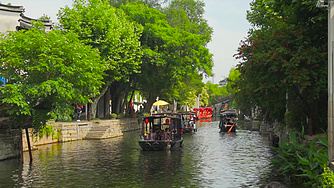
Suzhou Yanyuan.
Conclusion
Whether you are a nature enthusiast, a history buff, or simply seeking a quiet retreat, Suzhou Yanyuan promises a delightful escape into the beauty of traditional Chinese garden design. With its harmonious blend of nature, culture, and artistry, it stands as a testament to the enduring charm of Jiangnan landscapes.
Planning Your Visit: A Practical Guide
Practical Guide to Visiting Suzhou Yanyuan (燕园)
Overview:
Nestled in the heart of Changshu, Suzhou Yanyuan, also known as the “Yard of Swallows,” is a quintessential Jiangnan garden that beautifully encapsulates the elegance and artistry of traditional Chinese landscaping. Established during the Qing Dynasty, this garden is a hidden gem celebrated for its intricate design, lush greenery, and tranquil water features.
Location and Access:
Yanyuan is located at 18 Xinfeng Lane, near the Yushan Jinjiang Hotel in Changshu, Jiangsu Province. It is easily accessible by public transportation or taxi from nearby cities such as Suzhou and Shanghai.
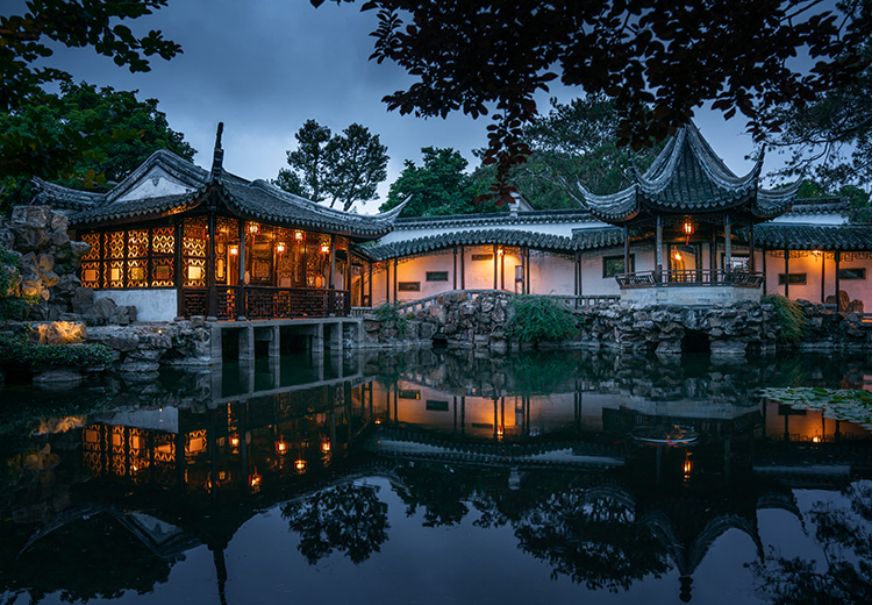
Suzhou Yanyuan.
Opening Hours:
The garden is open daily from 8:00 AM to 4:30 PM, providing ample time to explore its scenic pathways and historical structures.
Admission Fees:
The entrance fee is a modest 10 RMB, making it an affordable destination for both tourists and locals. Special events may occasionally offer free admission, especially during festive seasons.
Key Features:
Yanyuan is renowned for its compact design that packs a plethora of sights into a small area. Here are some highlights to look out for:
- 72 Stone Monkey Hill: A unique rock formation that playfully resembles monkeys, offering a delightful exploration experience for children and adults alike.
- Poetry Pavilion (赏诗阁): A serene spot where visitors can enjoy the beauty of nature while reading or composing poetry. It is the highest point in the garden, providing stunning views of the surrounding landscape.
- Lotus Pond (荷花池): An idyllic area to relax, especially during the blooming season when the lotus flowers are in full display.
- Yangu Cave (燕谷): The core attraction of Yanyuan, featuring a rugged yet picturesque landscape designed by the famed rock artist Ge Yuliang. This area is perfect for photography and appreciating the intricate rock formations.
- Five Mushrooms Hall (五芝堂): A historical building that served as a gathering place for the garden’s owners and their guests, showcasing traditional architectural beauty.
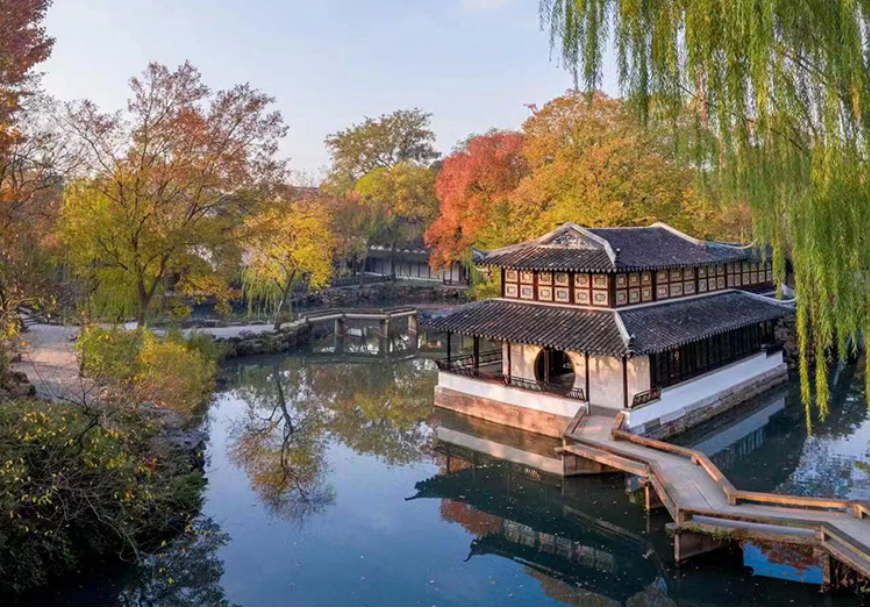
Suzhou Yanyuan.
Visitor Tips:
– Best Time to Visit: Spring and autumn are ideal seasons, as the weather is pleasant and the gardens are in full bloom.
– Photography: Bring your camera! The diverse landscapes, especially the rock formations and water features, provide excellent backdrops for photos.
– Dress Comfortably: Wear comfortable shoes and dress appropriately for walking, as the garden paths can be uneven.
– Local Cuisine: After your visit, consider dining at nearby restaurants that serve traditional Jiangsu cuisine, which is known for its delicate flavors and fresh ingredients.
Cultural Etiquette:
As a visitor to this historical site, please remember to respect the environment by not picking plants or disrupting the tranquility of the garden. Keep noise levels down to preserve the serene atmosphere.
Nearby Attractions:
If you have time, consider visiting other attractions in Changshu, such as:
- Changshu Museum: To learn more about the local history and culture.
- Yushan Mountain: Just a short drive away, offering hiking trails and panoramic views.
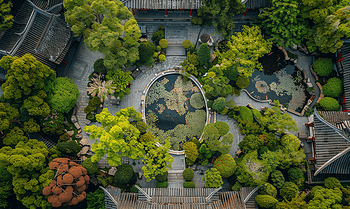
Suzhou Yanyuan.
With its exquisite design and peaceful ambiance, Suzhou Yanyuan is a must-visit for anyone looking to experience the charm of Jiangnan gardens. Enjoy your visit!
Tickets, Hours, and Booking
When planning a visit to Suzhou Yanyuan, budget-conscious travelers will appreciate the affordable ticket prices. Admission to this charming classical garden is just 10 CNY (approximately $1.50 USD), making it an excellent value for experiencing one of Jiangnan’s most picturesque landscapes.
The garden is open daily from 8:00 AM to 4:30 PM, allowing ample time to explore its intricately designed pathways and scenic features. While the entrance fee is modest, visitors often find that the rich history and unique architectural elements of Yanyuan provide a rewarding experience far beyond the ticket price.
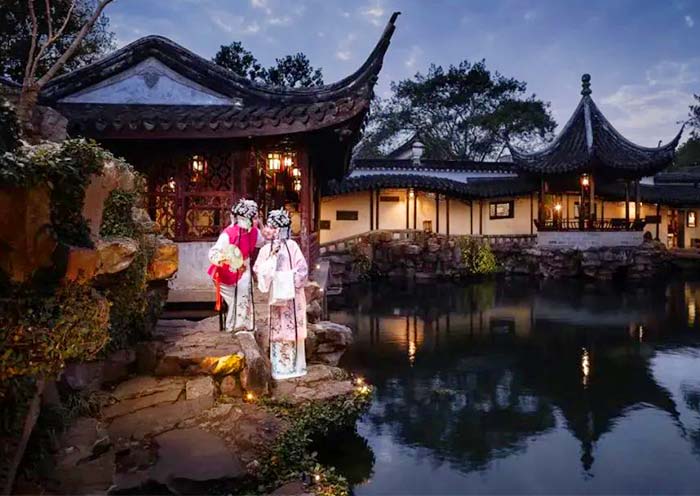
Suzhou Yanyuan.
For those looking to take advantage of group discounts or special offers, it’s advisable to check popular travel platforms or local tourism websites for any promotional deals that may be available during your visit.
Overall, whether you’re a solo traveler, a family, or part of a larger group, Yanyuan’s entrance fee is a small price to pay for a memorable glimpse into the beauty of traditional Chinese garden design.
How to Get There
Getting to Suzhou Yanyuan, located in Changshu, is quite straightforward, especially for travelers already in the region or visiting nearby cities like Suzhou or Shanghai. Here’s how you can navigate your way to this charming classical garden.
By Train
If you’re coming from major cities like Shanghai or Nanjing, the best way to reach Changshu is by train. The nearest railway station is Changshu Railway Station, which connects to several high-speed rail lines. From Shanghai, a direct train to Changshu typically takes about 1.5 to 2 hours. Once you arrive at the station, you can take a taxi or a local bus to reach Yanyuan.
By Bus
For those preferring to travel by bus, there are several long-distance buses that run from major cities such as Suzhou, Shanghai, and Nanjing to the Changshu Bus Station. From the bus station, you can catch a taxi or use local public transportation to reach Yanyuan. The bus journey is generally economical and offers a chance to enjoy the scenic views along the way.
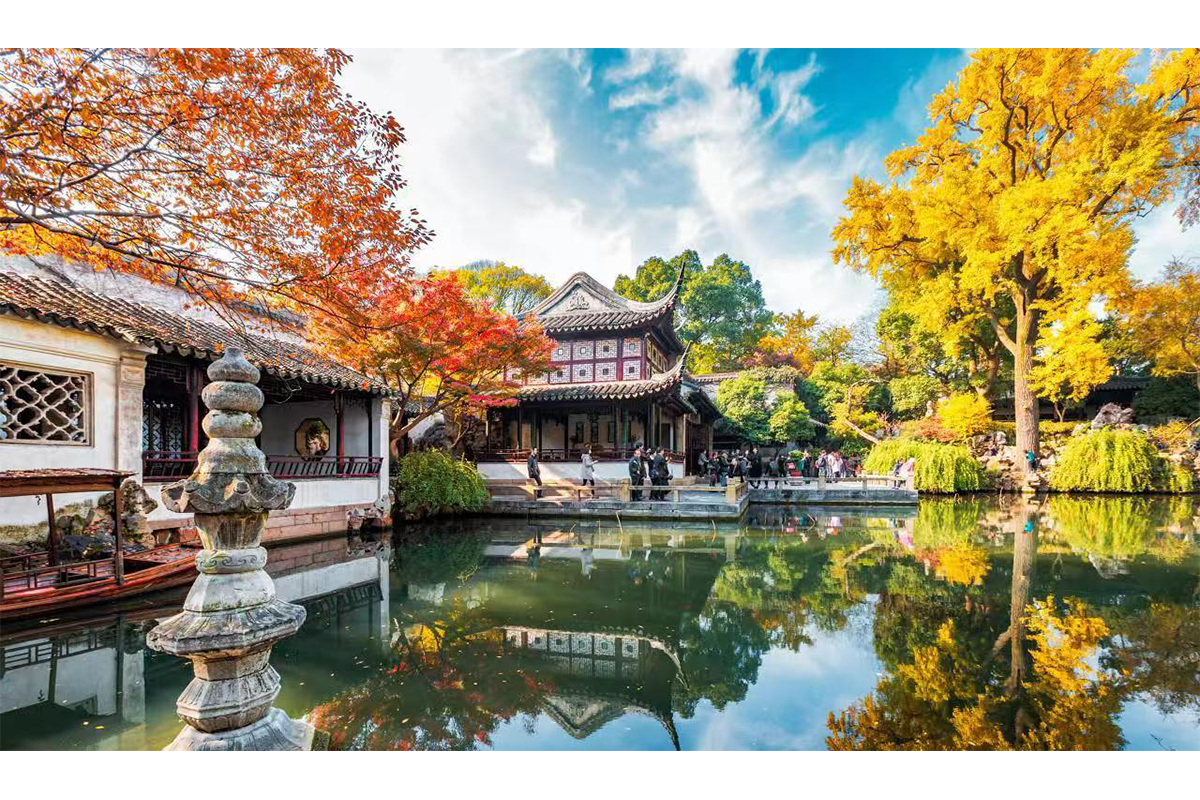
Suzhou Yanyuan.
By Car
Driving to Yanyuan is an excellent option if you wish to explore the surrounding areas at your leisure. The gardens are located at 18 Xin Feng Alley, near Yu Mountain Jinjiang Hotel. You can rent a car from cities like Suzhou or Shanghai, and the drive typically takes around 1.5 hours from either city. Keep in mind that parking might be limited during peak visiting times.
Local Transportation in Changshu
Once in Changshu, the local public transportation system is quite efficient. You can take local buses that head toward the vicinity of Yanyuan. It’s advisable to check the local bus schedules or ask at your accommodation for the latest information. Taxis are also readily available and can be hailed easily.
Admission and Opening Hours
Yanyuan usually operates from 8:00 AM to 4:30 PM, and the admission fee is quite affordable at 10 yuan. However, during special events or festivals, entry might be free or discounted, so it’s worth checking in advance.
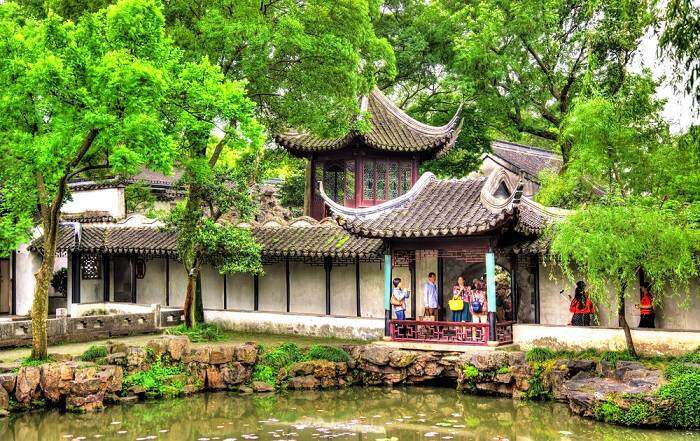
Suzhou Yanyuan.
Accessibility
The garden is relatively compact, making it accessible for visitors of all ages. However, some areas may have uneven terrain, so comfortable shoes are recommended.
Whether you’re exploring the intricate landscapes or sampling a local tea, getting to Suzhou Yanyuan is part of the adventure in experiencing the serene beauty of Jiangnan’s classical gardens.
Local Cuisine and Accommodation
When visiting Suzhou Yanyuan (燕园), you’ll find not only stunning landscapes but also delightful dining options and accommodations nearby. Here’s a guide to enhance your experience in this charming area.
Dining Options
Local Cuisine
- Suyuan Restaurant (苏州书香府邸平江府·木香中餐厅)
- Cuisine: Jiangsu and Zhejiang dishes
- Rating: 4.7/5
- Average Price: ¥121 per person
-
Nestled just a short distance from Yanyuan, this restaurant is known for its elegant ambiance and traditional local flavors, making it perfect for a leisurely meal after a day of exploring the garden.
-
Deyue Tower (得月楼)
- Cuisine: Jiangsu cuisine
- Rating: 4.3/5
- Average Price: ¥132 per person
-
Established during the Ming dynasty, Deyue Tower boasts a rich history and serves classic dishes in a beautifully preserved setting. The restaurant’s environment is steeped in cultural charm, ideal for enjoying authentic Suzhou flavors.
-
Longjing Tea House (龙井茶馆)
- Cuisine: Traditional tea and snacks
- Experience: Enjoy a serene atmosphere while sipping on famous Longjing tea paired with local snacks. It’s an excellent spot for a light refreshment amidst the garden scenery.
Accommodation
Nearby Hotels
- Changshu Starlight Hotel (常熟星光灿烂宾馆)
- Features: Comfortable rooms, modern amenities, and close proximity to Yanyuan and other local attractions.
-
Perfect for travelers looking for a convenient place to stay, this hotel provides a cozy environment with excellent service.
-
Jiangnan Garden Hotel (江南园酒店)
- Features: Scenic views and traditional Chinese architecture, with spacious rooms and a peaceful garden area.
-
With its stunning design, this hotel captures the essence of Jiangnan culture, providing a serene retreat after a day of exploration.
-
Days Hotel by Wyndham (维景国际大酒店)
- Features: A blend of modern facilities and traditional charm, offering a comfortable stay with easy access to local attractions.
- This hotel is a great choice for both leisure and business travelers, providing all the necessary amenities for a pleasant stay.
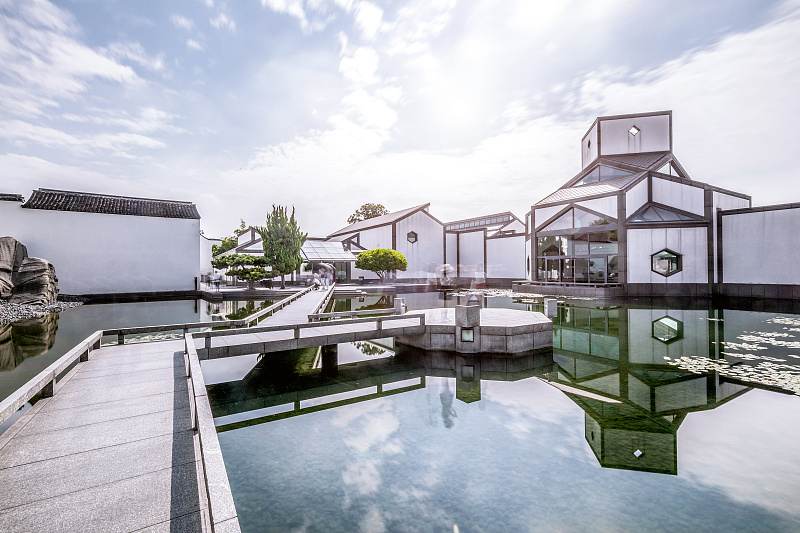
Suzhou Yanyuan.
Tips for Travelers
- Timing: Consider dining during the early evening hours to enjoy the sunset views from many restaurants.
- Reservations: For popular dining establishments, especially during weekends or holidays, making a reservation is advisable to avoid long waits.
- Local Delicacies: Don’t miss trying local specialties like Suzhou-style mooncakes or sweet and sour dishes that define the Jiangsu culinary tradition.
Whether you’re indulging in a sumptuous meal or resting at a cozy hotel, your visit to Suzhou Yanyuan will be as enriching as it is relaxing. Enjoy the harmonious blend of nature, culture, and cuisine that this enchanting destination has to offer!
Frequently Asked Questions
- What are the opening hours of Suzhou Yanyuan?
-
Suzhou Yanyuan is open daily from 8:00 AM to 4:30 PM. It’s best to arrive early to enjoy the serene atmosphere and explore the gardens at a leisurely pace.
-
How much does it cost to enter Suzhou Yanyuan?
-
The entrance fee for Suzhou Yanyuan is 10 RMB. This nominal fee provides access to one of the region’s exquisite classical gardens, making it a great value for visitors.
-
Is there a recommended route for exploring the garden?
-
Yes, a recommended route includes starting at the Tongchu Immortal Pavilion, moving through the Three Beauties Chamber, and then to the scenic Yangu Cave and Stone Monkey Hill. This path allows you to experience the highlights of the garden effectively.
-
Are there any special events or activities held at Suzhou Yanyuan?
-
Occasionally, the garden hosts events such as tea tastings and cultural performances. It’s advisable to check local listings or inquire at the entrance for any scheduled activities during your visit.
-
What are the main attractions within Suzhou Yanyuan?
-
Highlights include the 72 Stone Monkey Hill, the Poetry Appreciation Pavilion, and several unique rock formations. Each area offers picturesque views and opportunities for photography.
-
Can I bring food or drinks into the garden?
-
While outside food and drinks are typically not allowed, there may be designated areas where you can enjoy refreshments. Be sure to check the garden’s regulations upon arrival.
-
Is Suzhou Yanyuan accessible for visitors with mobility concerns?
-
The garden has some paths that may be difficult for those with mobility issues, particularly around the rocky areas. However, many parts of the garden are accessible, and staff can provide assistance upon request.
-
How do I get to Suzhou Yanyuan by public transport?
- You can reach Suzhou Yanyuan via public bus services. The nearest bus stop is a short walk from the garden entrance. It’s recommended to check local transportation apps or inquire at your hotel for the best routes.
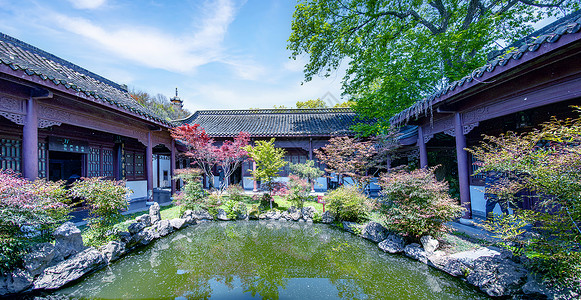
Suzhou Yanyuan.
Final Thoughts on Your Trip
Visiting Suzhou Yanyuan is more than just a leisurely stroll through a garden; it’s an immersive experience that captures the essence of traditional Chinese landscape architecture. This hidden gem, with its intricate rock formations, serene ponds, and poetic pavilions, offers a tranquil escape from the hustle and bustle of modern life. Each corner of Yanyuan reveals a new scene, inviting you to pause and reflect on the beauty of nature and the artistry of human design.
For those seeking a brief respite or a deeper connection to Suzhou’s rich heritage, Yanyuan is an essential stop. Whether you’re enjoying a cup of tea surrounded by blooming flowers or exploring the fascinating history of this classical garden, you’ll find that every visit brings a renewed appreciation for the delicate balance of nature and culture. Embrace the serenity of Yanyuan, and let its charm linger long after you’ve left its enchanting pathways.
